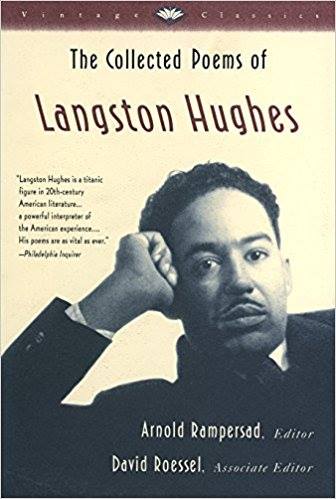GM – FBF – Today as America still morns the death of the great Aretha Franklin, I want to bring together two outstanding Black poets and one of the world’s best opera singers of her day, who was Black – they will come together in composistion to give this Black composer honors that no other composer received before his time. He would go on to compose works for the prestigious Julliard School of Music. Enjoy!
Remember – “When I hear the words of the poets and the vison of their words on paper it inspires me to write beautiful music” – Howard Swanson
Today in our History – August 18, 1907 – Howard Swanson was an African American composer best known for his art songs based on the poetry of Langston Hughes and Paul Lawrence Dunbar. Swanson was born in Atlanta, Georgia on August 18, 1907. Born in a middle class home, Swanson’s family sent his two older brothers to college which was for the time unusual.
Swanson’s music career started after the family relocated to Cleveland, Ohio in 1916. As a young boy he often sang in his church, sometimes performing duets with his mother. In 1925 when he was 18, Swanson’s father died which immediately and dramatically changed the family’s circumstances. Howard Swanson now had to earn money to support the family. After high school graduation he worked in the Cleveland Post Office.
In 1927, as his circumstances improved, Swanson decided to continue his education. He attended the Cleveland Institute of Music where he studied piano, eventually graduating with a Bachelor’s degree in music theory a decade later. In 1939 he received a Rosenwald Fellowship which allowed him to study in Paris, France with famed music instructor Nadia Boulanger. Swanson had planned to pursue graduate studies in Paris but in 1940 he was forced to evacuate Paris as the German Army overran France.
Swanson was virtually unknown until Marian Anderson included his setting of The Negro Speaks of Rivers at Carnegie Hall in 1949, and then the New York Critics Circle decided American composers were now well enough advanced that they could bestow their annual award on a local composer. Swanson was selected, and his Short Symphony was acclaimed the best new work performed in New York during the 1950-51 seasons. It was during this period that Joy was composed, soon becoming known by the recordings of Helen Thigpen, and of Phalese Tassie, and often performed by baritone Ben Holt.
Upon return to the United States he got a job with the Internal Revenue Service while studying and composing music on the side. In 1950, at the age of 43, Howard Swanson produced his first significant composition, “The Negro Speaks of Rivers,” a musical set to Langston Hughes’s famous poem of that name. His composition was performed in Carnegie Hall by Marian Anderson. Later that year his work Short Symphony was played by the New York Philharmonic orchestra. Swanson’s other works include “Music for Strings” (1952), “Concerto for Orchestra” (1957), and “Symphony No. 3” (1969).
Howard Swanson’s style was of
the neo-classical school. Although his music drew mostly from western European
styles he did incorporate African American styles with the addition of rhythmic
complexity, syncopation, and instances of beat phrasing. Swanson returned to
Paris after being awarded a Guggenheim Fellowship in 1952. He remained there
until 1966. While in Europe he was commissioned to compose works for the
Louisville Symphony Orchestra and the Julliard School of Music. In 1966 he
returned to New York City.
Howard Swanson died in New York City on November 12, 1978. Research more about
great American Black composers and share with your babies. Make it A Champion
Day!

